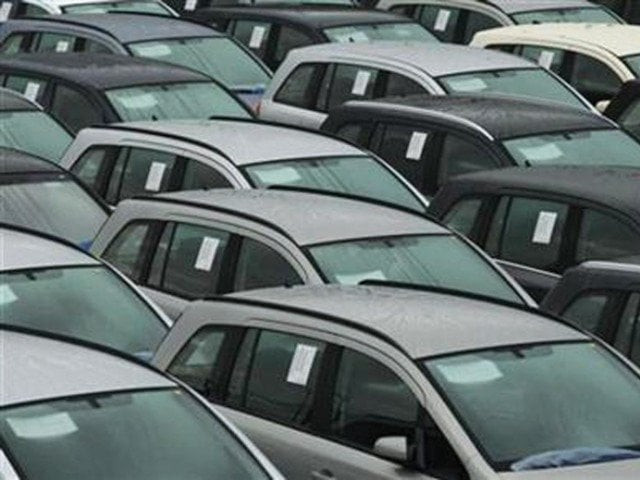Car financing soars to record high in July
More consumers turn to borrowing in wake of hefty interest rate cut

Car financing by banks in Pakistan soared by a staggering Rs99 billion (or 46%) in the past one year to an all-time high of Rs314 billion in July, as the financing became affordable for more people in the wake of a significant reduction in the benchmark interest rate under the Covid-19 pandemic.
The central bank had cut the benchmark interest rate by a huge 625 basis points during March-June 2020 to 7% to pave the way for cheaper bank financing for businesses and people to help them cope with the pandemic.
The development, coupled with government focus on ramping up auto production and sales to stimulate the economy, encouraged more people belonging to different income groups (from the middle to high income groups) to buy a car.
More importantly, the introduction of new brands and models during the pandemic - mostly in jeep (Sports Utility Vehicle - SUV) and over 1,000cc engine segments - prompted a large number of people to spend savings from the reduction in expenditures during the pandemic on buying a car.
Besides, a turnaround in economic activities increased people’s income, especially in the agriculture sector. Others saved more due to the suspension of international travel and tourism amid the Covid-19 pandemic.
A surge in the inflow of workers’ remittances into the country also motivated people to spend more on luxury cars during the year.
Auto financing has continued to grow for the past 13 successive months (July 2020 to July 2021). It has maintained the streak of making and breaking record high financing for the past few months, according to figures compiled by AHL Research.
The number of record financing matched with astonishing growth in auto sales over the past one year as well. Earlier, the industry had recorded standstill in production and sales for a couple of months in the wake of the Covid-19 outbreak in February 2020 in the country.
The automakers sold 20,699 units alone in July that were 104% higher compared to 10,123 units sold in the same month last year. Similarly, the car sales grew 90% to 238,000 units in the full previous fiscal year 2020-21.
“There is still available a big room for growth in car sales and auto financing, as Pakistan stood among those counties where owing a car in per 1,000 people stood on a lower side,” BMA Capital Executive Director Saad Hashmey said while talking to The Express Tribune.
“The prevailing low interest rate has made availing the car financing affordable. Simultaneously, the low interest rate scenario supported meeting the pent-up (backlog) demand for cars as well.”
The auto financing would continue to remain high till the interest rate remains in single-digit, going forward. Besides, the government policy to support car manufacturing and introduction of electronic cars would continue to find new buyers in the country, he said.
“Those people who have accumulated savings due to suspension of international travelling and tourism amid Covid-19 pandemic and introduction of high-end cars (like SUVs) agreed people to spend more on buying a car,” said Pak-Kuwait Investment Company (PKIC) Head of Research Samiullah Tariq.
Besides, low interest rate scenario, increase in agriculture income and surge in receipt of workers’ remittances altogether gathered momentum in car sales and car financing, he said.
“The automobile sector improved from sharp contraction (37.7%) last year to double digit growth (23.4%) during July-March FY21. The increase in economic activities had a positive effect almost across the board,” State Bank of Pakistan said in July.
“Multiple factors played a part in this performance. Low interest rates, relative stability in automobile prices and introduction of new models facilitated growth in the automobile sector… The impact of low interest environment is evident from increase in consumer financing for purchase of vehicles to the tune of Rs73.6 billion during July-March FY21 compared to Rs3.2 billion last year.”
Stability in vehicle prices during the period also had a role in propping-up automobile production. “For example, car prices, which had jumped by 20.8% during FY20, rose by 3.4% during July-March FY21. (the then) stability in exchange rate played a part in keeping the pricing from escalating during the review period,” it said.
Published in The Express Tribune, August 28th, 2021.
Like Business on Facebook, follow @TribuneBiz on Twitter to stay informed and join in the conversation.



















COMMENTS
Comments are moderated and generally will be posted if they are on-topic and not abusive.
For more information, please see our Comments FAQ